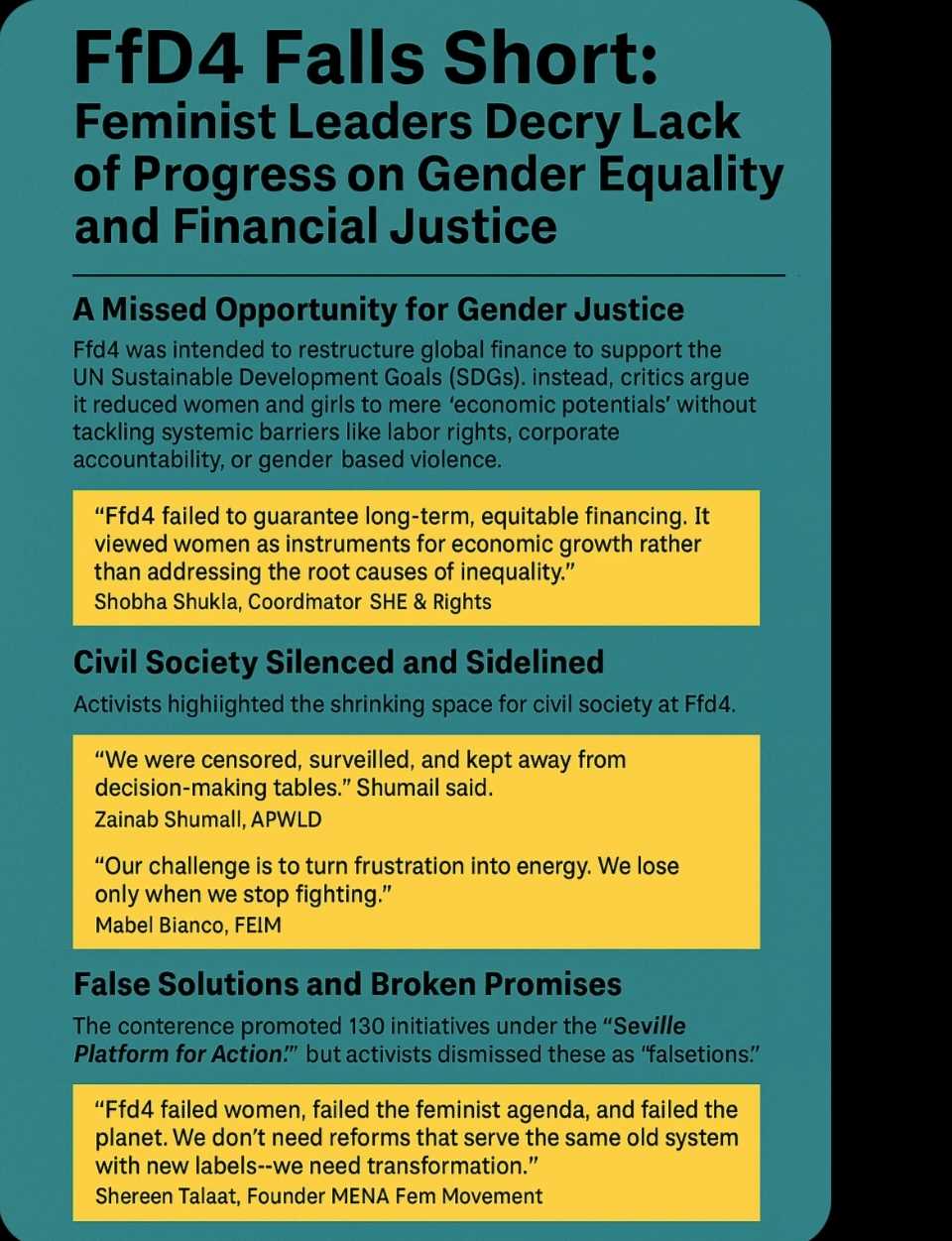
Audrey Galawu- Assistant Editor
The 4th International Conference on Financing for Development, recently held in Seville, Spain, has come under fire from feminist leaders and civil society organisations for what they describe as a regressive outcome that failed to advance gender equality, reform global financial structures, or deliver justice to women, girls, and marginalised communities.
Despite hopes that the conference would signal a bold commitment to inclusive and equitable development financing, activists say FfD4 delivered weak, non-binding promises that serve existing global power structures.
FfD4 was expected to align global financing systems with the UN Sustainable Development Goals.
Instead, feminist voices say the outcomes reduced women and girls to mere "economic potentials," without addressing systemic inequalities like labour rights, corporate impunity, and gender-based violence.
Shobha Shukla, Coordinator of SHE & Rights, lamented: "FfD4 failed to guarantee long-term, equitable financing. It viewed women as instruments for economic growth rather than addressing the root causes of inequality."
The outcome document was notably silent on core feminist demands, including sexual and reproductive health and rights, and access to safe abortion—fundamental pillars for achieving gender justice.
Sai Jyothirmai Racherla of ARROW described the FfD4 outcomes as a watered-down version of earlier commitments from Addis Ababa (2015), Monterrey (2002), and Beijing (1995): "It was a compromise document that failed to meet current global realities or tackle the persistent barriers to a gender-transformative economy."
Racherla added that poor countries, especially in the Global South, remain shackled by debt and austerity measures that disproportionately hurt women and girls.
Activists also expressed alarm at how civil society was excluded from meaningful participation.
Zainab Shumail?of APWLD described intense censorship: "We were surveilled, our advocacy materials—including fans with slogans like ‘debt kills development’—were banned. The venue design itself excluded us from engaging governments."
Mabel Bianco, founder of FEIM, added: "This isn’t a compromise—it's a betrayal. Our challenge is to turn frustration into energy. We only lose when we stop fighting."
Related Stories
Feminist organisations dismissed the conference’s 130 so-called “high-impact initiatives” under the Seville Platform for Action as window dressing.
Shereen Talaat of MENA Fem Movement said: "Only 4% of global aid has gender as a primary goal—and less than 1% reaches feminist movements. FfD4 offered soft language and no enforcement. No timelines. No accountability."
She warned that greenwashing and economic extractivism are being rebranded as “solutions,” while colonial power dynamics remain untouched.
"FfD4 failed women, failed the feminist agenda, and failed the planet."
Another major contradiction noted by activists was the increase in military spending by wealthy nations during the same period.
Swetha Sridhar of Fos Feminista observed: "While NATO pledged to raise defence spending to 5% of GDP by 2035, the same governments refused to cancel debt for the Global South or finance universal health coverage."
She also criticised the tokenistic use of gender equality during negotiations. "Gender rights were tossed in as bargaining chips, while real conversations around tax justice, climate finance, and reparations were avoided."
Despite the setbacks, feminist leaders say the struggle is far from over.
The Political Declaration of the Feminist Forum, held just before FfD4, lays out an ambitious vision for a feminist, decolonial, intersectional, and people-centred economy that puts care, justice, and redistribution at its core.
Racherla stated firmly: "We’re not going to stop until we deliver on gender equality. This fight isn’t about inclusion into broken systems—it’s about transforming them."
Shukla concluded: "Governments must show political will to fund sexual and reproductive rights and deliver a gender-just economy. Lip service is not enough—we demand real, equitable reform."
As the world prepares for the upcoming UN High-Level Political Forum (HLPF 2025), feminist groups are sharpening their strategies to ensure their voices—and the rights of all women and marginalised groups—are no longer sidelined.










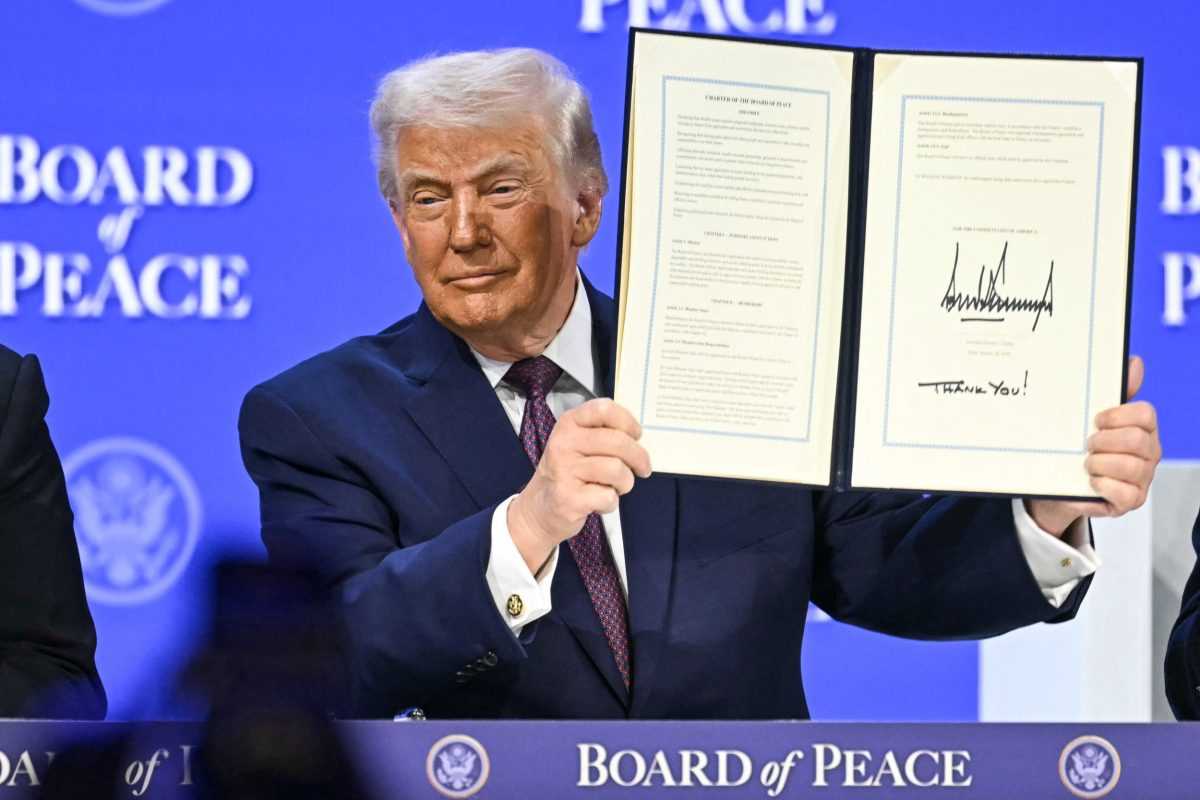
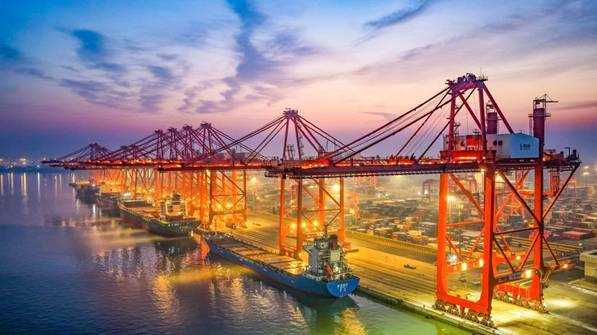
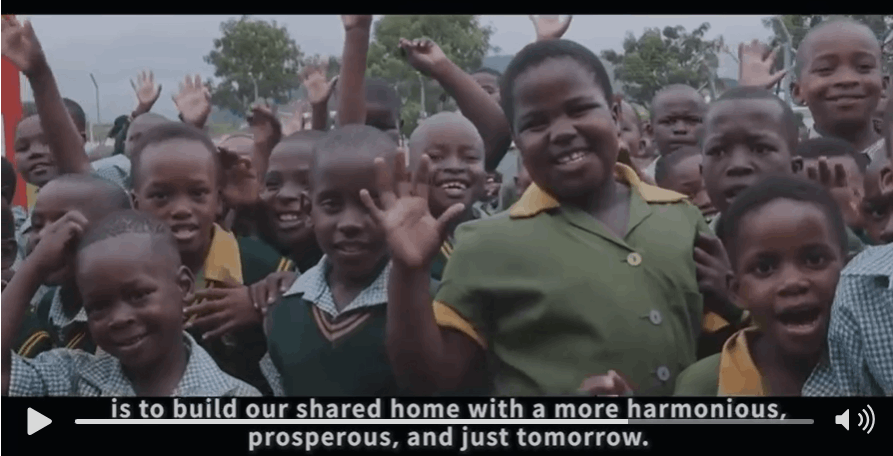

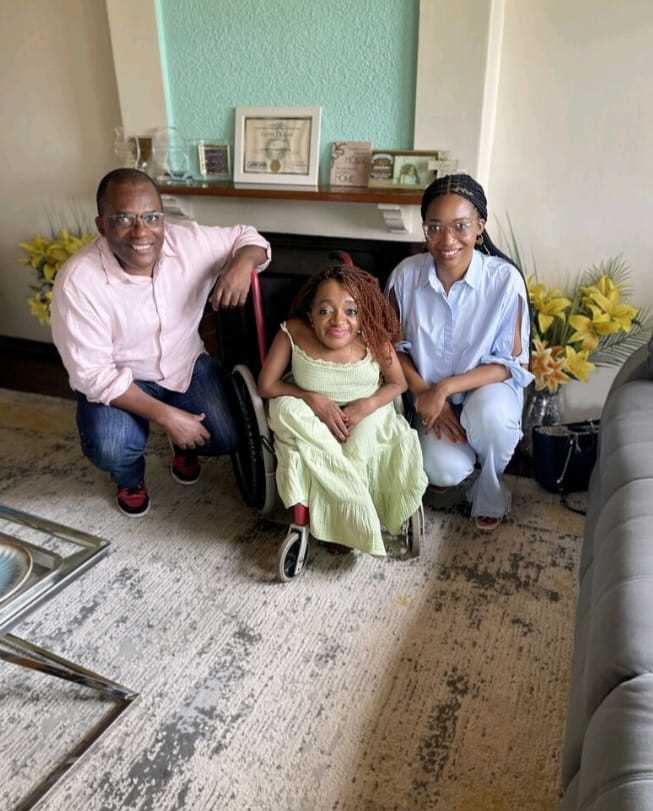





Leave Comments